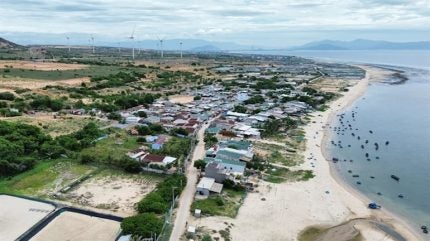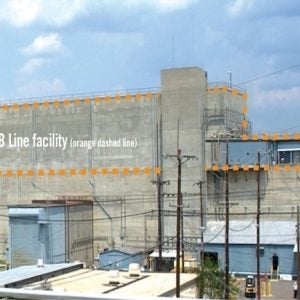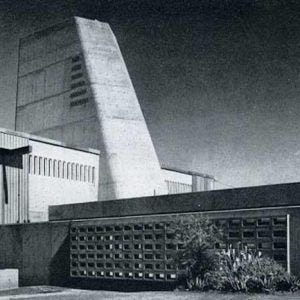
Vietnam’s National Assembly has approved the continuation of the Ninh Thuận Nuclear Power Project and additional budget allocations for 2024, VNS reported. The decisions were part of a resolution passed unanimously on 30 November during the 8th session of the 15th National Assembly. Many nuclear energy experts believe that reviving the development of nuclear power is a correct policy. “The policy has been reviewed seriously and scientifically by the Government, rather than merely as a response to structural energy shortages,” VNS noted.
In 2016, Vietnam’s legislature approved a government resolution to cancel plans to build two NPPs with Japanese and Russian assistance. In 2009, the assembly had approved plans for the construction of four nuclear power reactors, two each at two plants in the central province of Ninh Thuan with a total capacity of 4,000MWe. The contracts were awarded to Japan Atomic Power Co and Rosatom, at a total cost of around $8.9bn.
However, the plans were delayed after the government ordered relevant agencies to review safety measures following the Fukushima accident in 2011. Vietnam was also facing a chronic financial deficit partly due to a shortfall in tax revenue. The delays had significantly increased the estimated cost of the project. Since then, the south-central province of Ninh Thuan has been developing into a renewable energy hub.
However, in June 2022, Vietnam’s National Assembly Economic Committee proposed that the Government should remain committed to plans for the two NPPs in Ninh Thuan instead of scrapping the project. By November 2016, nearly VND2,000bn ($86m) had been spent on seven components of the projects, including research and study for planning, ground clearance and relocation, constructions of some buildings, as well as sending Vietnamese engineers to Russia for training.
The committee stressed that nuclear power should be a serious consideration in Vietnam’s power development planning, to realise its commitment to achieving net zero emissions by 2050 and to ensure national energy security and development of an independent, self-reliant, with diversified power sources.
In September, the Ministry of Industry and Trade (MIT) was commissioned to undertake a comprehensive study of nuclear power development across various nations to draw up a proposal for integrating nuclear technology into Vietnam’s energy matrix in the future. The directive came from the Government Office, based on conclusions presented at a key meeting which addressed challenges in the gas and offshore wind power sectors.
In November, Prime Minister Phạm Minh Chính, addressing the National Assembly, said the Government would continue to refine legal regulations to address obstacles in implementing power infrastructure projects and, over the longer term, proposed to the relevant authorities to restart nuclear power projects and robust development of offshore wind energy.
Currently, the Ninh Thuận 1 and Ninh Thuận 2 NPP projects need to adopt new, modern technologies to ensure the highest possible safety standards. Hoàng Anh Tuấn, former Director of the Nuclear Energy Department under the Ministry of Science & Technology, says nuclear power plants are crucial projects related to national security.
Therefore, investment, construction, operation, decommissioning and safety procedures must comply with the Law on Atomic Energy, relevant regulations and the International Atomic Energy Agency’s (IAEA) nuclear power development standards.
Tuấn added that Vietnam has already gathered many essential resources for developing nuclear power, including suitable locations, a skilled workforce, and a comprehensive legal framework as well as a nuclear regulatory system, the Law on Atomic Energy and regulations for the construction of NPPs. However, it must continue investing in advanced training programmes to ensure a workforce capable of supporting nuclear power projects that meet international standards for safety, security, efficiency and sustainability.
Lê Doãn Phác, another former Director of Nuclear Energy, said that the locations for the Ninh Thuận 1 and 2 NPPs, with a combined capacity of 4,000 MWe, had been thoroughly researched by the Vietnamese Government in collaboration with Russia and Japan. The plans remain in the feasibility study phase, and the Government is now being urged to restart the projects from the feasibility study stage.
The Ninh Thuận 1 NPP project was a collaboration with Russia, which had completed and handed over the site approval documents and the English version of the feasibility study report at the end of December 2013. The Ninh Thuận 2 NPP project was a joint effort with Japan, which had completed and handed over the site approval documents and feasibility study report in 2014.






